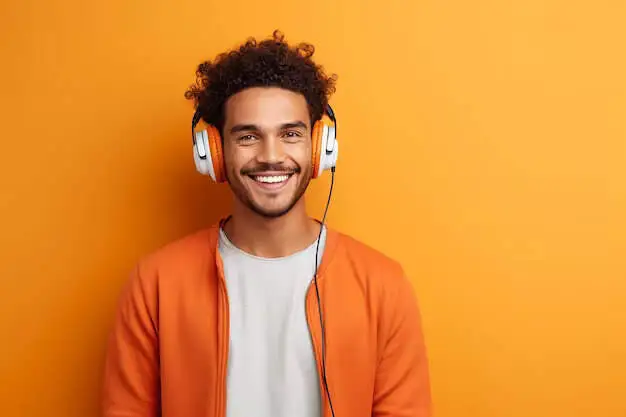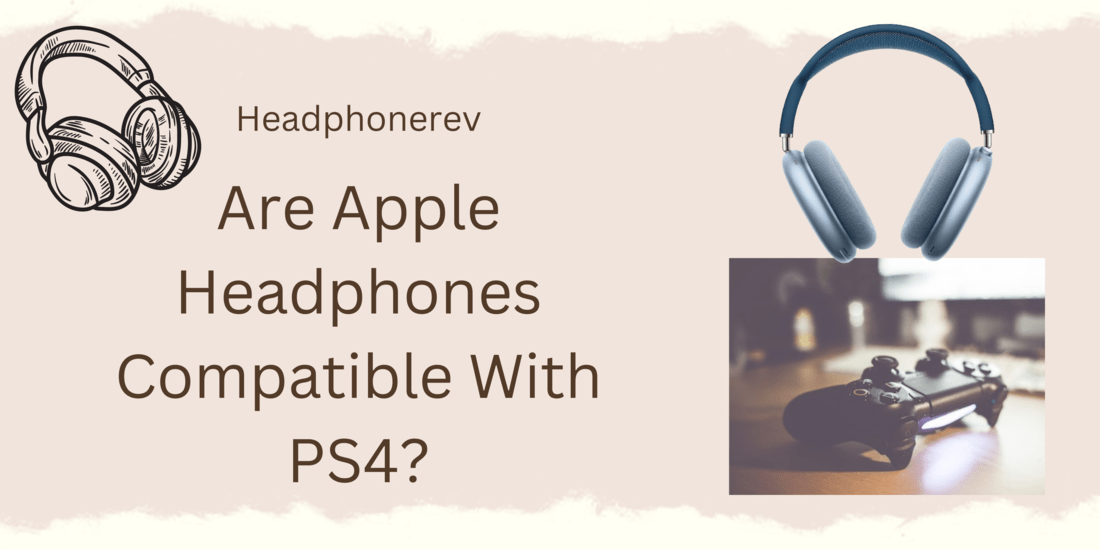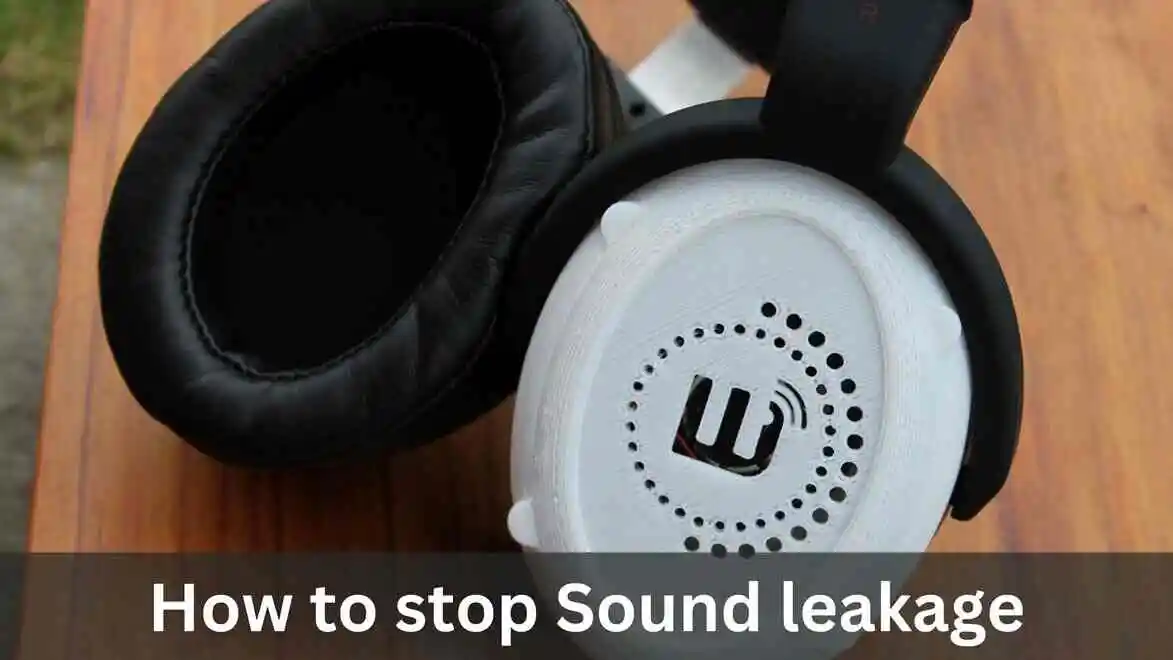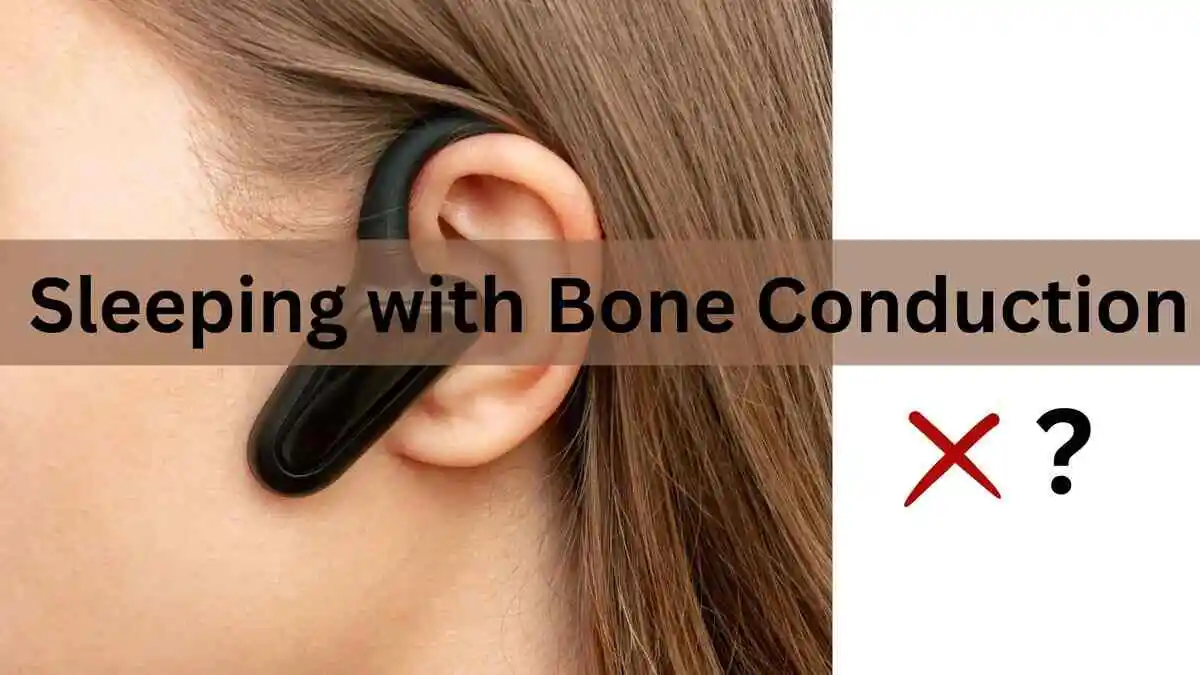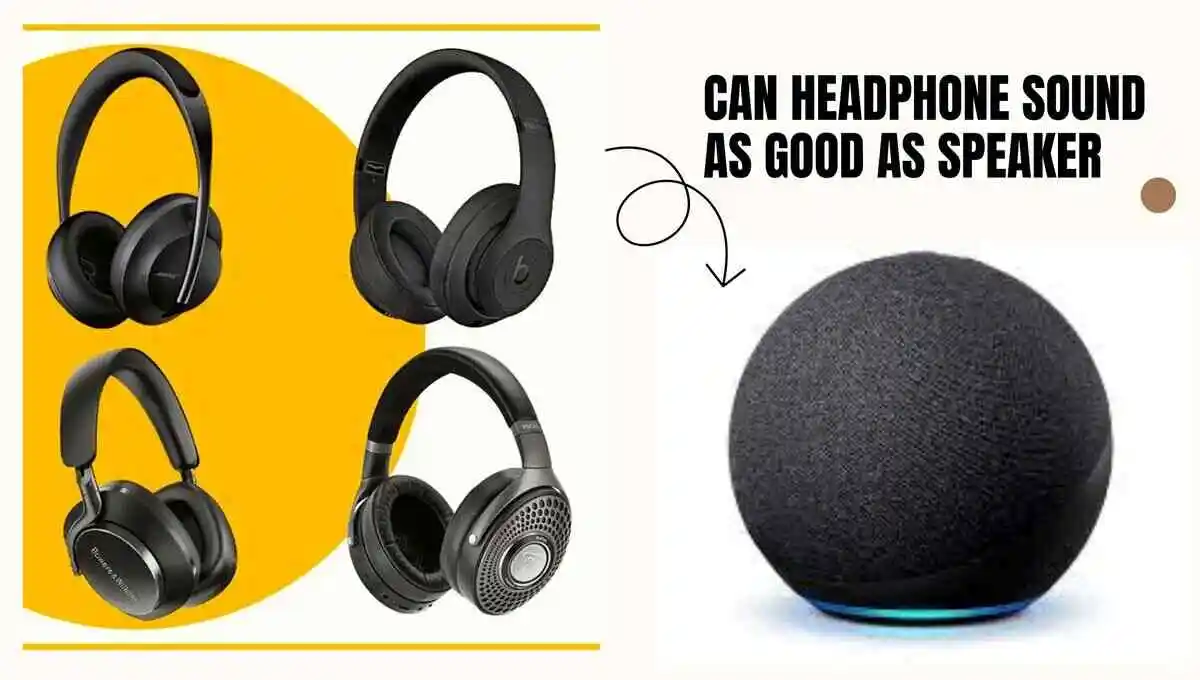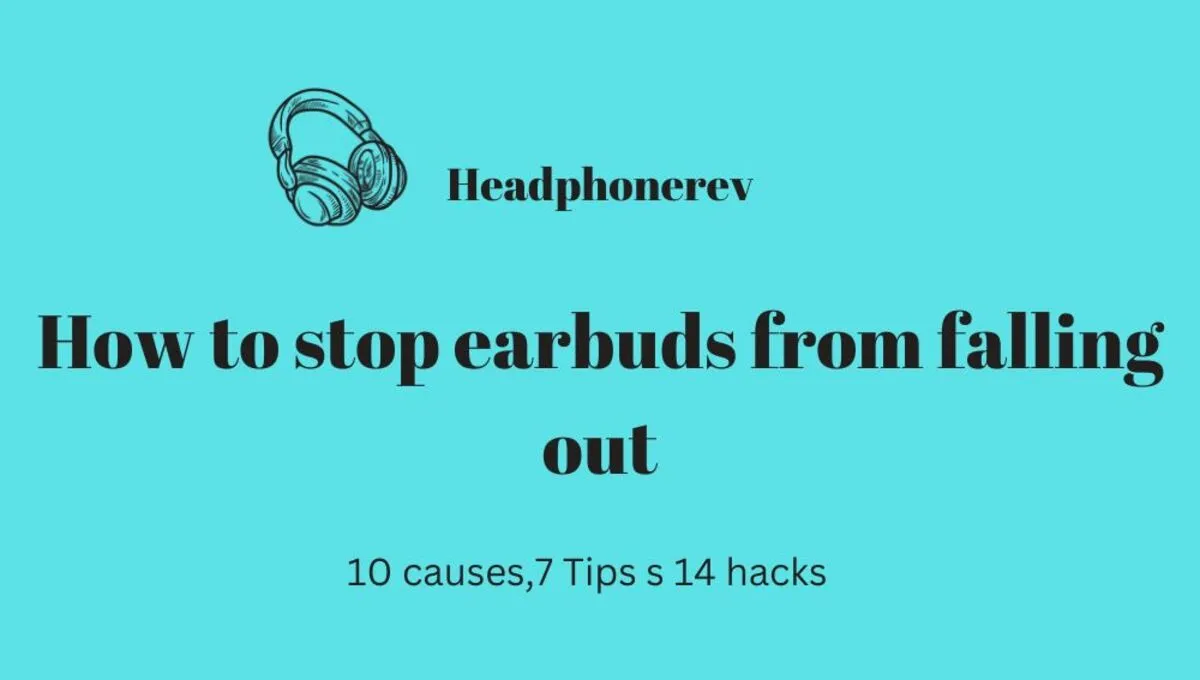When you see musicians Recording or Performing at live concerts, you may get attracted to the headphones they wear; during this, you might get attracted to a question: why do musicians wear headphones?
Musicians commonly wear headphones during recording and live concerts to block out external noise and allow them to focus on their music. There are many different types of headphones, each with advantages and disadvantages.
In this article, we will explore why do musicians wear headphones when recording. & why do musicians wear headphones while performing at live concerts?
Why Do Musicians Wear Headphones?
Some musicians choose to wear headphones not just for practical reasons but for aesthetic reasons as well. Headphones allow the musician to focus on the music and not be distracted by outside noise.
When they are playing in a band or orchestra, it is essential that the musicians can hear each other clearly so that they can play together as a cohesive unit.
Some musicians also choose to wear headphones when recording because it allows them to isolate themselves from distractions outside the recording studio.
They can work on their music without being interrupted. This also allows them to get more accurate recordings than working in a live setting with other people around them.
Are Headphones Necessary for Musicians?
Many professional musicians wear headphones when performing or recording, but is this necessary? Some would say that headphones are necessary for musicians, as they allow them to focus on their music and not be distracted
Others might say listening to music without headphones can improve your musical ability. Ultimately, it comes down to personal preference. Many different types of headphones are available, so finding the right pair for you is essential.
What Headphones do Musicians Use?
When it comes to headphones for musicians, there are a few things to consider.
- For starters, headphones need to block noise so the musician can focus on their music.
- Secondly, they need to be comfortable enough that the musician can wear them for extended periods.
- And finally, they need to reproduce sound accurately so the musician can perform at their best.
There are various types of headphones available for musicians, and each has its own set of advantages and disadvantages.Some popular types of headphones for musicians include studio monitors, portable speakers, and earbuds.
Studio monitors are typically the most expensive headphones but are also the best quality. They’re designed to reproduce sound accurately and are usually mounted on a soundboard or speaker stand.
Portable speakers are typically less expensive than studio monitors, but they don’t usually have accurate sound reproduction.
They’re often used when there’s not enough space in the rehearsal room or studio for a full-size studio monitor. Earbuds are popular among musicians because they’re relatively affordable and provide good quality.
Types of Headphones for Musicians:
There are many different types of headphones for musicians to choose from. Some headphones are specifically designed for musicians and have features that make them more comfortable and practical than other headphones.
Some of the most popular types of headphones for musicians are:
-
Over-the-ear headphones are the most popular type of headphones for musicians because they provide a good seal around your ears and offer a lot of noise isolation.
They’re also usually the most comfortable headphones, thanks to their soft ear cups.
Over-the-ear headphones are generally better suited for listening to music than making phone calls because they tend to deliver more substantial bass frequencies.
-
On-ear headphones: On-ear headphones sit on top of your ears like earphones would on a pair of sunglasses.
They’re generally less expensive than over-the-ear headphones and don’t offer as good noise isolation.
However, they’re often more lightweight and portable, making them good choices if you want to take your music with you wherever you go.
In-ear monitors are specially designed headphones that sit inside your ear canal. This means they provide excellent noise isolation and precision sound reproduction, which is perfect.
-
In-ear headphones are inserted into the ear canal and rest on top of the ear. Because they’re inserted directly into the ear, in-ear headphones provide superior sound quality and reduced outside noise compared to other headphones.
They’re also often easier to wear for extended periods because they don’t touch your ears or clothing.
-
Over-the-head headphones attach to the head via a band or headband. This type of headphone is popular because it allows people to listen to music or audiobooks while working, exercising, or traveling.
Over-the-head headphones provide good sound quality but can be less comfortable than in-ear headphones because they can touch your ears and cause pressure headaches.
How do in-ear monitors work?
When you listen to music through headphones, your eardrums vibrate in response to the sound waves. This motion can cause pressure within your ear canal and exacerbate any hearing problems you may have.
In-ear monitors bypass this problem by sending the audio directly to your inner ear. The microphone inside your earpiece captures sound waves and sends them straight to your inner ear without having to go through your eardrums.
This eliminates the vibration that can cause pressure and amplifies the sound so you can still hear it.
There are three components to in-ear monitors:
- Mediatransmitter - Sends the audio of the performance (monitor mix) to the receiver.
- The receiver is connected to the earphones and receives the transmitted audio. In addition to the volume control knobs, it’s usually worn as a belt pack by musicians.
- This system enables you to eliminate unwanted noise from entering your ears while transmitting the monitor mix directly to the musicians.
Why does a Singer put their hands on their ear when they sing?
One of the most common questions asked by singers and music students is: why do they put their hands on their ears when they sing? The answer can be found in the science of sound.
When a singer puts their hands over their ears, it helps to direct sound waves towards the eardrums. This is because the hand acts as a sounding board and reflects the sound waves that hit it.
By controlling the sound waves, the singer can create a better acoustic image in their head. Additionally, by covering the ear, the singer reduces external noise from interfering with their performance. This can help them to stay focused and attentive to their vocals.
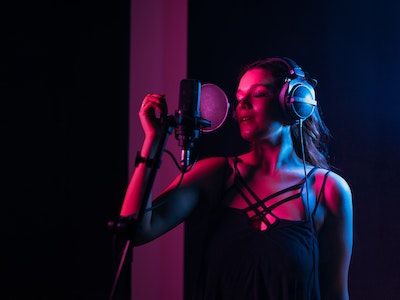
Why Do Musicians Wear Headphones When Recording?
There are the following few reasons why musicians often wear headphones when recording.
To Keeping Each Recording Clear & Bleeding Free:
Musicians wear headphones because when they are playing their instrument, they want to keep each recording clear and free from any bleeding.
The sound from the microphone can bleed into the headphones, causing distortion that can degrade the recording quality.
Multi-track recording for separating instruments.
Most multi-track recordings are made with instruments playing simultaneously on different tracks. This allows the engineer or producer to mix and match the sounds of each tool to create a unique final product. Musicians generally wear headphones while recording to keep all of the sounds separate.
Without headphones, it’s difficult to tell where one sound stops and the next begins. This can lead to unwanted changes in pitch or timing when multiple instruments are played together.
By separating each device, musicians can maintain their accuracy while recording and minimize unintentional mixing errors.
Timing & focus is essential for a musician:
There is no question that timing and focus are critical to a musician’s success. Whether you’re playing live or recording, having the right timing and direction can mean distinguishing between outstanding and terrible performances.
To keep their rhythm and melody in sync, musicians must be on top of their timing. If they’re not keeping time with their drummer or guitar player, they’ll likely lose the crowd and wind up sounding out of sync.
On the other hand, if a musician isn’t focused enough, they can easily miss cues from their bandmates. Not paying attention to what’s happening around them can lead to mistakes and lost opportunities. To avoid wastage of their hard work & to stay focused and Well timed delivery, musicians wear headphones.
To Communicate With Sound Engineer & Producer:
Headphones have become an inseparable part of most musicians' lives. Not only do they allow musicians to hear the music better, but they also allow them to communicate with their sound engineer and producer.
Some musicians also use headphones to communicate with their sound engineer and producer. When a musician is working on a new song, they may want to run it by their sound engineer for feedback.
Usually, the sound engineer would be in the studio with the band playing live, but if the musician is working on a new song, they may want to record it first so they can listen back later. Using headphones, the musician can talk to their sound engineer without distraction.
Overall, headphones are an essential part of many musicians' lives. They help them hear the music better and communicate with their sound engineers and producers.
To Synchronize With The Other Musicians:
Headphones allow those in the group to communicate and synchronize with one another. Headphones also provide an isolated environment for musicians, which can be especially beneficial when playing in a loud background of Instruments sound.
Some musicians use headphones to block out distractions while they’re working. This allows them to focus on their music and not on anything else. It can also help them to improve their concentration. Additionally, some musicians use headphones to isolate themselves from the crowd.
By doing this, they can better focus on their work and avoid getting distracted. Headphones are essential for any musician and often vital for drummers and bass players. By using headphones, these players can avoid being disturbed by the sound of the crowd or other instruments.
This can help them to improve their concentration and create a more focused musical experience.
To Hear their own mistakes:
Another reason musicians wear headphones is so that they can hear their own mistakes.
If they make a mistake while playing, they can still listen to it and correct it without disturbing the other people in the band or audience. This helps them to improve their technique over time.

Why Do Musicians Wear In-Ear Monitors At Live Concerts?
Musicians often wear headphones at live concerts to better hear the music and block out other distractions. Headphones also allow musicians to focus on their music without being distracted by outside noise.
Develop more understanding of music:
By wearing headphones, musicians can improve their understanding of the music and be more in tune with the performance.
For less disruption:
Additionally, musicians who wear headphones are less likely to be disturbed by other people or animals in the audience. This helps them to stay focused on their performance and increases their chances of delivering a fantastic show.
Here are some reasons why headphones are so crucial to musicians:
-
They Allow Musicians To Stay Focused
When you’re up onstage playing your guitar or drums, it can be tough to keep your focus if you’re constantly hearing the noise from the audience.
Headphones help musicians block out all distractions and stay focused on their performance.
-
They Help Musicians Stay In Tune
One of the most prominent challenges musicians face is staying in tune with their instruments.
If you’re not constantly keeping tabs on your tuning, you will soon find yourself out of tune and struggling to play correctly.
Headphones allow musicians to maintain perfect pitch without having to worry about anyone surrounding them distractingly shouting out suggestions.
Improving Technical skills:
Headphone use tends to improve musicians' technical skills – by providing feedback on how well we’re playing, headphones can help us adjust as needed.
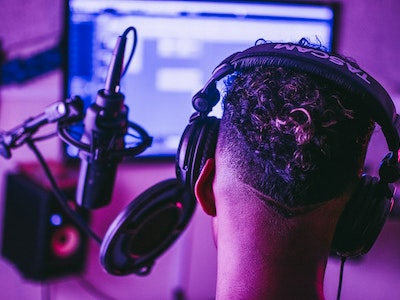
For fluid transitions during Music Concerts:
As concert musicians, the sound is key to producing an excellent performance. But what happens when sound isn’t properly balanced, or your instrument needs to be amplified more than others in the ensemble?
Addressing these and other audio issues can be challenging without the proper tools – like headphones. Headphones allow us to hear our environment and our fellow musicians clearly, without disturbing others or disturbing the ensemble’s overall sound.
They also provide isolation from outside sounds and vibrations, which can help us focus on our playing. In addition, headphone use has been shown to improve tempo, melody, and accuracy in musicians' performances.
To Protect Ears:
Headphones have become a common sight at concerts, with many musicians wearing them to protect their hearing.
While wearing headphones can undoubtedly protect your ears from extra noise, they can also negatively affect your music listening experience.
To Provide the audience entertainment without vocal distortion.
Most people probably associate headphones with music lovers who love to immerse themselves in their favorite tunes. Still, a few musicians use headphones to create a more immersive experience for their audience.
When you’re a musician and want to create a particular sound for your listeners, it’s essential to have accurate audio playback.
Headphones let you isolate yourself from the crowd’s noise and other distractions, allowing you to hone in on your performance. Plus, when you’re not dealing with background noise, you can focus on what you’re playing, giving you an edge when competing against other musicians.
It necessitates communication between the performers and the crew.
There are also times when headphones are necessary for safety reasons. For example, a loud stage volume or an emergency necessitates communication between the performers and the crew.
Regarding live performances, it’s always important to be aware of your surroundings and take appropriate precautions.
Conclusion
As a musician, you must keep up to date with the latest trends in music technology. Whether a touring musician or an independent artist, headphones are essential to your kit.
They allow you to listen to your music privately and focus on your performance without distraction.
They also come in handy when you need to take phone calls on stage or between songs. So why do musicians wear headphones? We hope this article has explained why.
Frequently Asked Questions
Benefits of Wearing Headphones?
There are many benefits to wearing headphones when listening to music. These headphones can help to improve focus, concentration, and impulse control. They can also help reduce stress levels, promote relaxation, and enhance sleep quality.
When it comes to improving focus and concentration, wearing headphones can help you stay on task. By blocking external distractions, you can better focus on the music and complete your tasks more efficiently. This is especially useful when working on a difficult assignment or studying for a test.
Another benefit of headphone use is that it can help reduce stress levels. When you are listening to music, you are essentially escaping from the world.
This can allow you to relax and destress in a way that is impossible when interacting with others. In addition, headphone listening has been shown to improve moods in general. So if stress is an issue, using headphones may be the perfect solution!
Finally, headphone listening has been shown to improve sleep quality. Listening to music before bedtime reduces your time awake, lying in bed, and thinking about your worries or plans for the day. Studies have also shown that people who listen to music before bed tend

